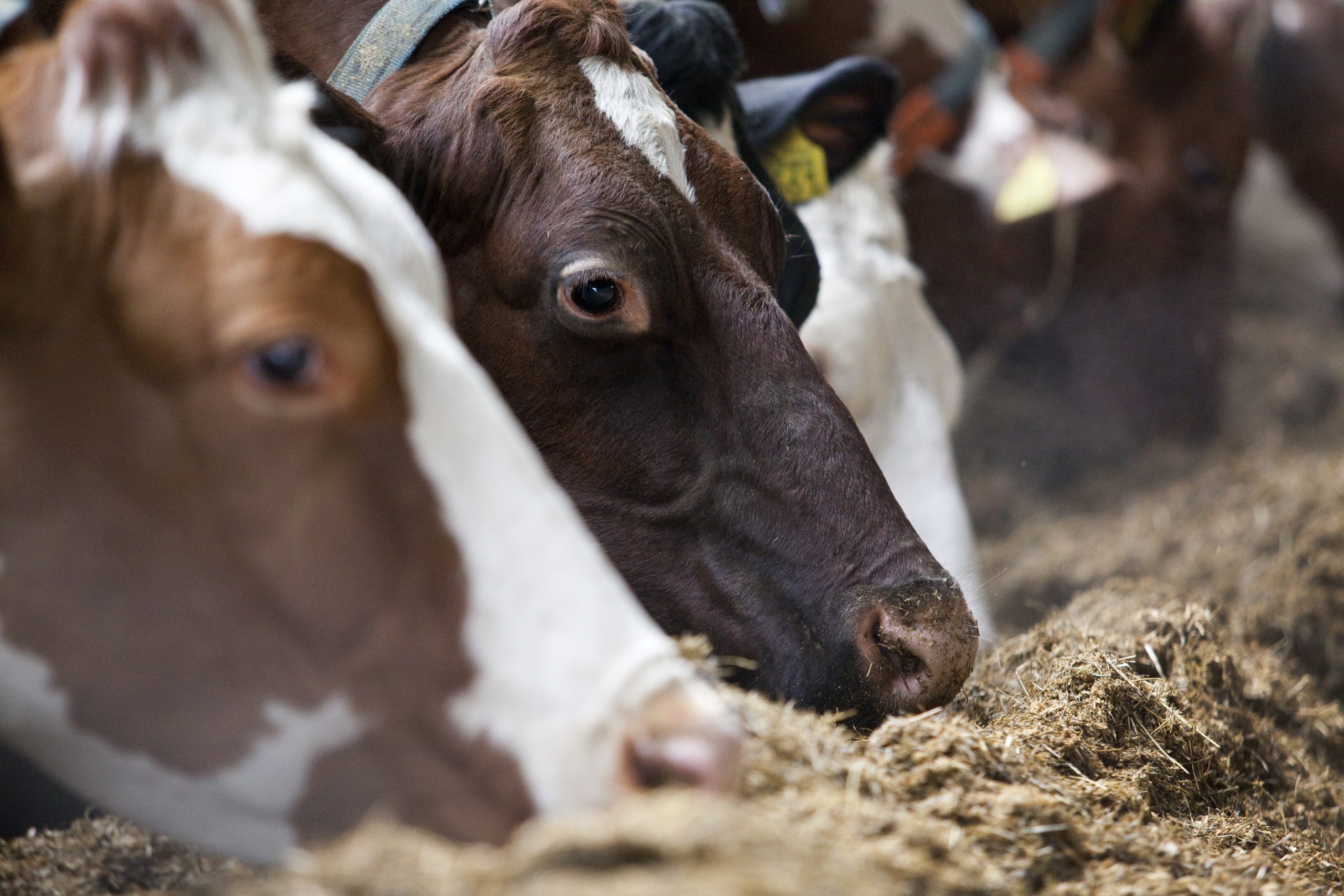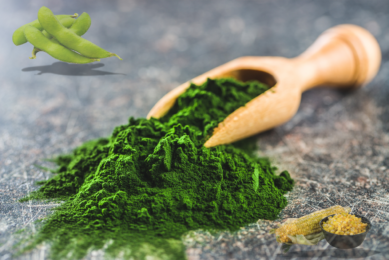Algae in cow feed to make healthy milk

A study was recently conducted to determine the effect of supplementing the diet of dairy cows with several levels of an algal product high in the long chain fatty acid docosahexaenoic acid (DHA).
The aim of this study from the Agri-Food and Biosciences Institute (AFBI) in Northern Ireland, is to increase the content of long chain omega-3 polyunsaturated fatty acids in milk and dairy products with applications at both farm and factory level. Increased consumption of these fatty acids can have a range of health benefits which can help with blood pressure, asthma, arthritis, diabetes and other chronic conditions.
Results from inclusion of algal supplement
This trial offered dairy cows either 0, 75, 150 or 225g supplement per cow per day along with 10kg concentrate and grass silage. Milk samples were collected weekly for analysis of fatty acids, milk fat, protein and lactose with milk yields recorded daily. Levels of DHA in milk increased substantially with inclusion of the algal supplement, from 0.18 mg DHA/g milk fat in milk from cows offered the control diet (zero algal supplement) to 3.26 mg DHA/g milk fat in milk from cows offered 225g/day of algal supplement.
Milk yield was not affected by the dietary treatments but milk fat and protein concentrations were reduced with increasing levels of algal supplementation. Milk fat concentration declined from 4.11% in control milk to 3.01% in milk from cows offered 225 g/cow/day algal supplement, while milk protein concentration declined from 3.22% in control milk to 3.03% in milk from cows offered 225 g/cow/day algal supplement.

Find out more about alternative protein sources
The omega-3 enriched milk was subsequently processed into an omega-3 enriched Greek-style high fat yoghurt with no adverse effects on yoghurt processing characteristics or microbial safety and no evidence of oxidation over a 3 week storage period at 4⁰C. Sensory evaluation found no difference between the control and omega-3 yoghurt on each of 2 production days, so the omega-3 enriched product tasted just as good as the control product.











